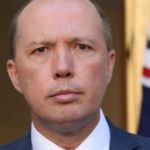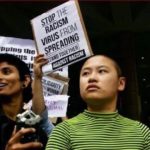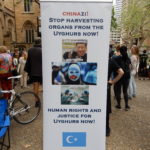What Does the Law Say About Self-Quarantining in NSW?

In an attempt to counter the spread of the novel coronavirus (COVID-19), several public health measures have been implemented across Australia, and New South Wales is no exception.
These include directions that require self isolation in certain situations, the quarantining of arrivals into Australia and prohibitions on certain public gatherings.
Breaching these rules can lead to serious consequences, including criminal charges and even the prospect of imprisonment.
Here’s a rundown of the rules.
The law
The Public Health Act 2010 (NSW) (‘the Act’) empowers state officials to make a range of enforceable directions and orders with a view to dealing with public health risks.
The power to deal with these risks is contained in section 7 of the Act, which provides that where the health minister considers on reasonable grounds that a situation has arisen that is, or is likely to be, a risk to public health, the minister may take such action or give such directions that are necessary to deal with the risk and its possible consequences.
The section makes clear that actions and orders can be made in order to:
- Reduce or remove any risk
- Segregate or isolate inhabitants
- Prevent, or conditionally permit, access to areas
The section says that such an order must be published in the Gazette as soon as practicable after it is made, but that failure to do so does not invalidate the order.
Similar legislation applies in other parts of the nation.
Current ministerial directions
The following directions have been made pursuant to these rules:
- All people who arrive in Australia must self-isolate for 14 days
- Individuals who have been in close contact with a confirmed case of coronavirus must self-isolate for 14 days
- Public gatherings of more than 500 people are prohibited. This rule does not apply to schools, universities, shops, supermarkets, public transport or airports
- Individuals who are diagnosed with the virus must be placed in quarantine
Penalties
Section 10 of the Act provides that a person who, without reasonable excuse, fails to comply with such a direction faces a maximum penalty of 6 months in prison and/or a fine of 100 penalty units, which is currently $11,000.
Any continued failure to comply is punishable by a fine of 50 penalty units, or $5,500, for each day the offence continues.
The maximum penalty for companies is 500 penalty units, or $55,000, and 250 penalty units, or $27,500 for each day the offence continues.
Orders against persons suspected of being infected
Section 62 of the Act empowers ‘authorised medical practitioners’ – who are defined by section 60 as the chief health officer and registered medical practitioners authorised by the chief health officer’s secretary – to make public health orders against individuals in certain circumstances.
The section provides that such an order can be made if the practitioner is satisfied, on reasonable grounds, that the person:
- Has a Category 4 or 5 condition and because of the way the person behaves may, as a consequence of that condition, be a risk to public health (coronavirus is a category 4 condition), or
- Has been exposed to a contact order condition, is at risk of developing the contact order condition, and may be a risk to public health because of the way the person behaves.
The section requires such an order to be in writing, name the person subject to the order, state the grounds on which it is made, state that, unless sooner revoked, it expires at the end of the specified period or, if no period is specified, in 28 days.
Such an order may require a person – known as the ‘public health detainee’ to do any of the following things:
- Refrain from specified conduct
- Undergo specified treatment
- Undergo counselling
- Submit to the supervision
- Notify the Secretary of other persons with whom the person has been in contact within a specified period
- Notify the Secretary if the person displays any specified signs or symptoms
Section 70 of the Act prescribes a maximum penalty of 6 months in prison and/or 100 penalty units, or $11,000, for any person who fails to comply.
Section 71 of the Act provides that a person who contravenes a public health order can be placed under arrest to ensure compliance.
Powers to ensure compliance with the Act
The Act contains a number of powers to enable authorised officers of the NSW Health Service to ensure compliance.
These include section 108 which empowers them to enter premises and seize, inspect or copy documents in the premises, section 110 which can force suspected persons to answer relevant questions and 112 which requires persons to give their name and address.
Information and updates about the coronavirus are provided by NSW Health and the Federal Department of Health.







